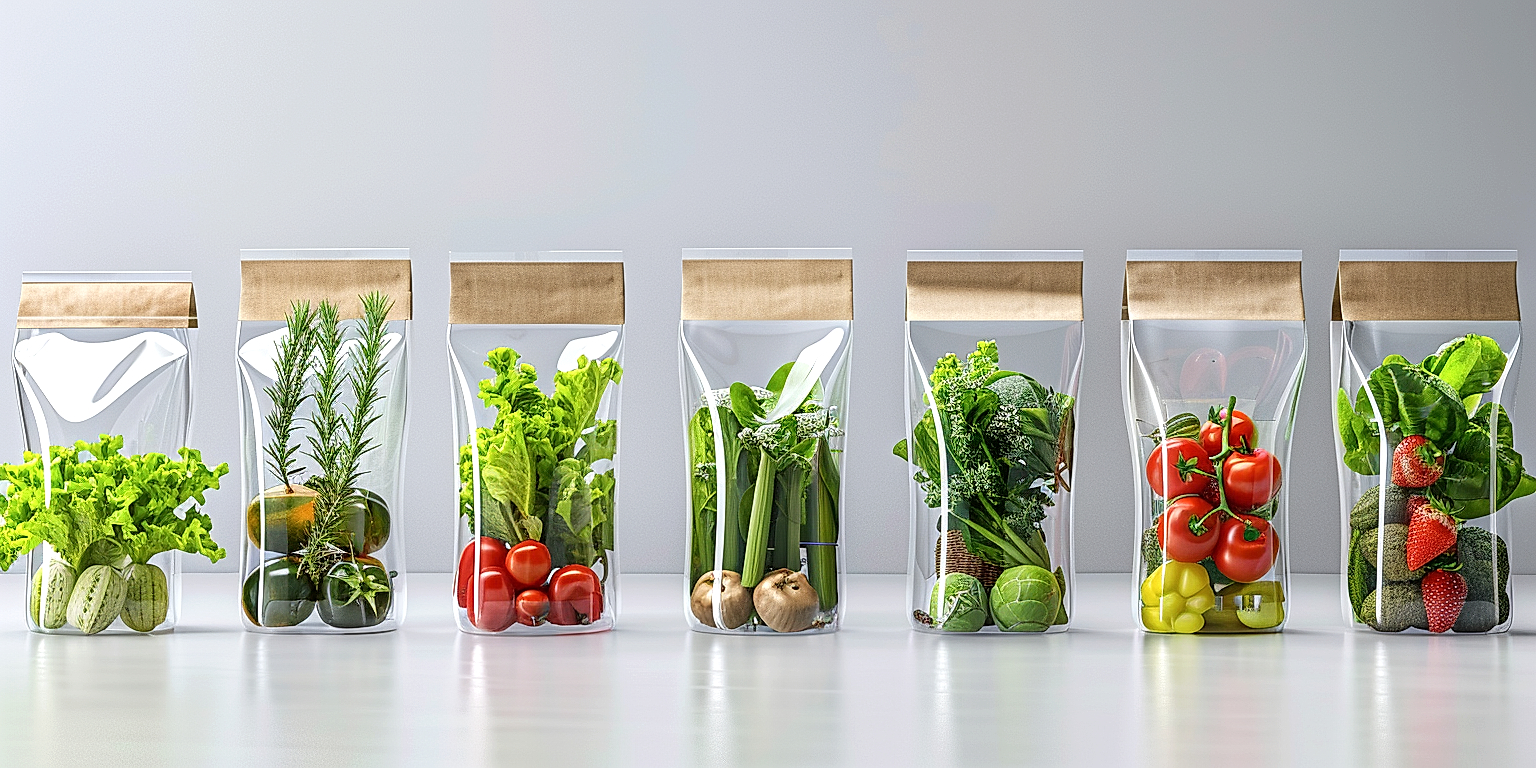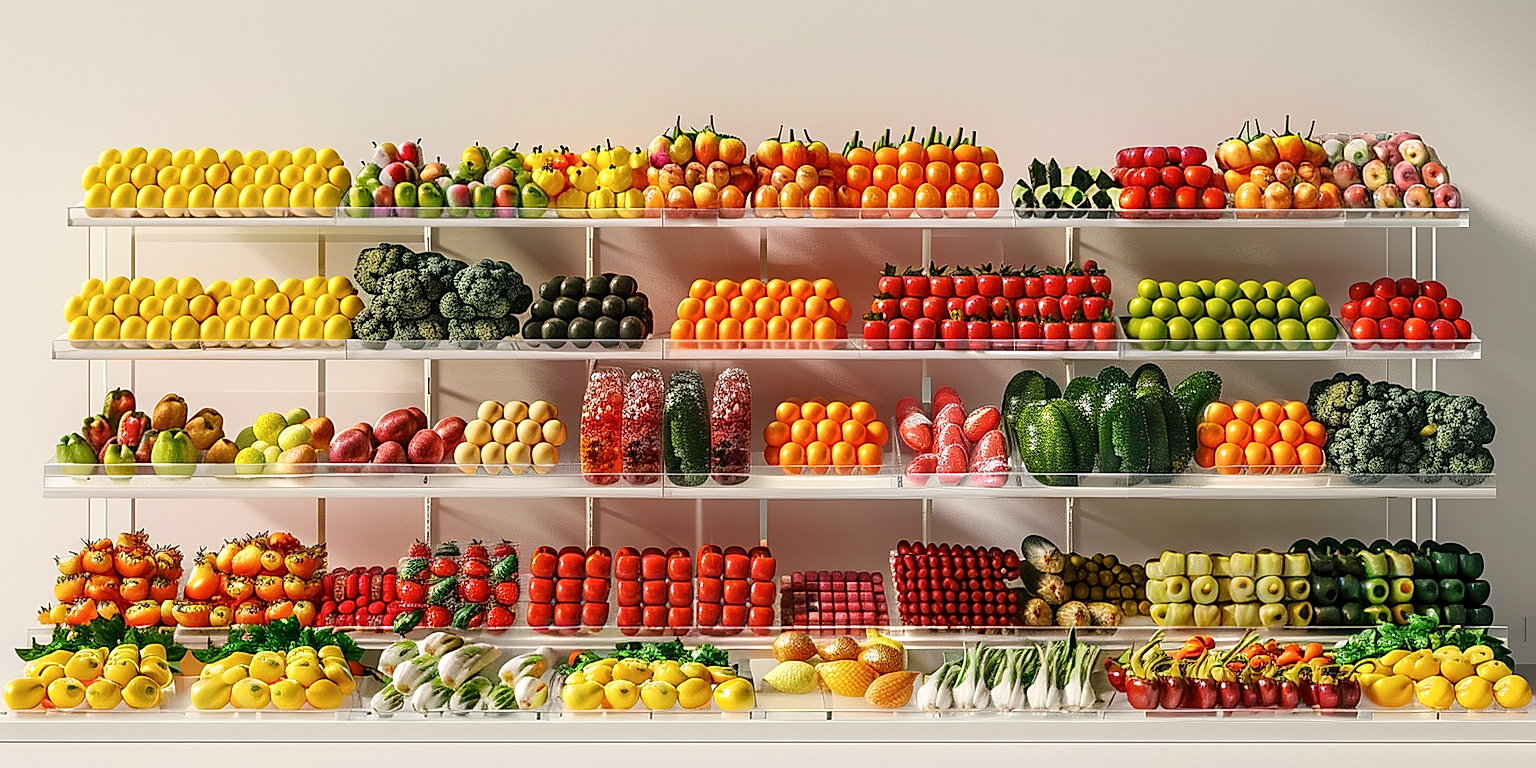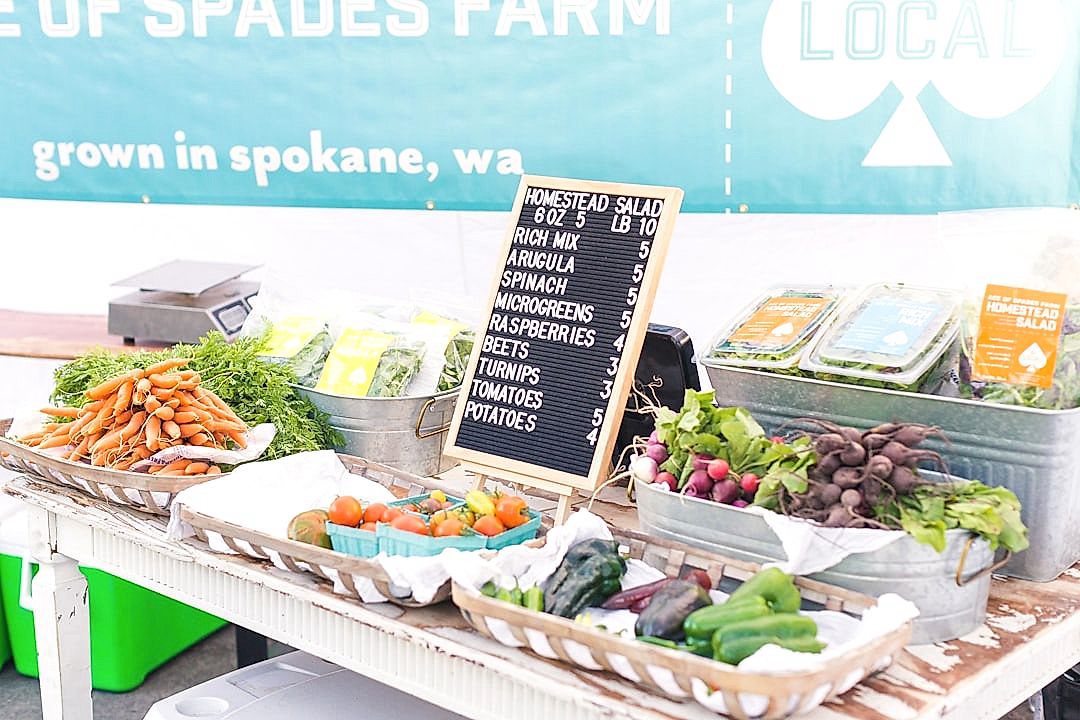Sustainability is no longer seen as a fad, but a necessity for the produce retail industry.
The past decade has seen a drastic paradigm shift as retailers, from small farms to supermarket giants, focus on sustainable practices.
Consumers demand for environmentally-friendly products has greatly driven this change.
Amidst the backdrop of environmental concerns, businesses are now seen as key players in the fight against climate change.
Sustainability, therefore, has become a critical aspect of a store’s commercial strategy and brand identity.
This shift towards eco-consciousness is expected to sustain in the foreseeable future, redefining the landscape of produce retail.
Contents
Sustainability Movements In Produce Retail
1. Farm-to-table produce retailing
The Farm-to-table phenomenon is a growing trend in the field of produce retailing.
It refers to a model where the produce sold by retailers is sourced directly from local farms rather than through distribution centers or warehouses.
The concept promotes not only freshness but also sustainability by eliminating the need for long-distance transportation of produce, thereby reducing carbon footprints.
This initiative affects both economic and environmental aspects positively – retailers are able to offer fresher and healthier produce while minimizing their ecological impact.
By sourcing directly from local farmers, retailers also support small-scale agriculture and contribute towards the strengthening of the local economy.
In terms of operational logistics, the farm-to-table model demands a close collaboration between the retailers and farmers.
Retailers need to be involved in several stages of the production process, from cultivation to harvest to processing to ensure the quality and safety of the products
This type of retailing is notably different from conventional retail procedures and calls for a different set of skills, knowledge, and strategies.
In fact, retailer-farmer partnerships are a critical element in the success of the farm-to-table structure.
Through these partnerships, retailers gain insights into the farming practices and have greater control over the quality of the produce they sell.
Simultaneously, farmers are assured of a reliable market for their produce.
Moreover, the farm-to-table model benefits consumers by offering them a selection of fresher, safer, and locally produced food options.
Consumers are increasingly interested in knowing the source of their food and this model facilitates that by offering transparency.
Additionally, by promoting local farming, this model aids in preserving biodiversity and improving food security.
While challenges exist, such as ensuring a constant supply and managing seasonal variations, the farm-to-table model has notable benefits and plays a significant role in sustainability movements in produce retail.
2. Organic Farming for Retail Sales
Within the domain of produce retail, a noticeable movement towards organic farming has erupted, emphasizing the aspect of sustainability in an innovative way.
Driven by rapidly evolving consumer preferences and growing sensitivities to environmental concerns, this transformation in the approach to farming reinforces the promotion of environmentally friendly practices and the conservation of biodiversity.
Organic farming eschews the use of synthetic fertilizers, pesticides, and genetically modified organisms, thereby minimizing the ecological footprint of produce retail.
As a result, organic produce is perceived as a healthier and safer option, amplifying its value and appeal among the retail shoppers.
On a commercial aspect, organic farming can be a profitable niche for retailers, considering the growing market for organic food.
However, it is important to note that this sustainability movement also necessitates the retailers to adopt different strategies and approaches.
For instance, retailers need to adjust their supply chains to incorporate organic farming practices and to meet the stringent standards for organic certification.
This might entail partnering with organic farmers, establishing organic farming cooperatives, and investing in infrastructure to maintain the integrity of organic produce.
Indeed, tapping into the domain of organic farming requires a substantial investment in the beginning, but it could yield robust benefits with strategic planning and accurate product positioning.
Additionally, educating consumers about the benefits of organic produce, and the sustainability impact of their buying choices can encourage increased consumption of organic goods.
By informing shoppers about the direct relationship between sustainable farming practices and their individual food purchases, retailers can position themselves as responsible stewards of sustainability.
To make organic food more accessible, retailers can also explore innovative pricing strategies and promotional schemes that incentivize the purchase of organic produce.
To summarize, the movement towards organic farming in produce retail is a tangible representation of sustainability, that goes beyond a mere trend.
It represents a significant shift in retail strategies, consumer preferences, and a broader understanding and commitment to environmental stewardship and sustainability.
3. Zero-waste Grocery Packaging
As part of the sustainability movement in produce retail, one cannot overlook the major role played by zero-waste grocery packaging.
This is an initiative to reduce the waste produced from grocery packaging, which is a significant contributor to global landfill waste.
Not only does this contribute to environmental pollution, but it also defies the goal of sustainability in the retail industry.
Zero-waste initiatives therefore seek to address and correct this issue by promoting the use of recyclable or compostable packaging materials.
These packaging materials warrant minimal production energy, and are designed to biodegrade or be re-purposed after use, thus eliminating the waste issue.
For example, more retailers are using paper-based packaging instead of plastic- the former being easily recyclable and more favorable to the environment.
Further, the use of glass containers for products like sauces and jams, instead of plastic ones, also characterizes the zero-waste approach.
It is also becoming quite common to find stores allowing consumers to bring their own reusable bags to carry groceries.
Some are even embracing the practice of bulk buying, where customers can purchase items such as grains and cereals in their own reusable containers or bags, thus eliminating the need for packaging.
Additionally, with advancements in technology, innovative solutions to grocery packaging are also emerging.
This includes the development of bioplastics – a type of packaging made from plant-based materials, which is designed to be composted after use.
Such innovations are a testament to the possibilities that the zero-waste movement continues to unlock in the context of grocery packaging.
On the other hand, it is worth noting that zero-waste grocery packaging is not just good for the environment, but it also offers economic advantages.
e.g., lower production costs, especially in the long run, as they require fewer resources and energy to produce, compared to conventional packaging materials.
Moreover, many customers today are more conscious about the environmental implications of their consumption habits and are willing to patronize stores that champion sustainability.
Therefore, embracing zero-waste packaging can also be a strategic move for retailers looking to attract and retain such consumers.
Overall, it is evident that zero-waste grocery packaging plays an essential role in promoting sustainability in the produce retail industry.
4. Seasonal Produce Retail Strategies
Seasonal produce retail strategies are crucial in the sustainability movements in produce retail.
These strategies help minimize waste, enrich nutritional values, enhance taste and texture of the produce, and reduce the costs associated with long-haul transportation and storage.
More retailers and consumers are turning towards seasonal produce as they are becoming more aware of the benefits they provide for their health and the environment.
Primarily, selling fruits and vegetables in their respective seasons when they naturally ripen allows retailers to provide their customers with the highest quality produce.
By purchasing seasonal produce, retailers can ensure they’re buying products when they’re at their peak.
This maximizes the flavors and nutritional content of the fruits and vegetables, offering customers a superior product.
Moreover, products harvested in their natural season can often be sourced locally, shortening supply chains and reducing the carbon emissions associated with long-distance transportation.
Seasonal produce often requires less artificial assistance to grow, such as warmth, light, or chemical control over pests and diseases.
As such, sustainability focused retailers can reduce their environmental impact by prioritizing seasonal produce sales.
Additionally, offering seasonal produce helps to educate customers about the seasons in which their favorite fruits and vegetables are naturally available.
This can create an increased awareness and appreciation for sustainable farming and retail practices, which are key elements in sustainability movements in produce retail.
Seasonal produce retail strategies require strategic planning and effective marketing to help customers understand and appreciate the benefits.
For example, retailers can create seasonal sections in their stores or online platforms, to highlight the current seasonal offerings.
Promotional activities like providing recipes using seasonal produce, offering cooking demonstrations, or hosting vendor events can encourage customers to choose seasonal produce.
Lastly, strict adherence to seasonal produce retail strategies can distinguish retailers as committed players in sustainable retailing, fostering customer loyalty and preference in an increasingly competitive market.
Indeed, seasonal produce retailing is a potent strategy in advancing the sustainability movements in produce retail.
5. Locally sourced produce initiatives
Locally sourced produce initiatives are integral strategies to sustainability movements in produce retail.
These initiatives promote the consumption of food items that are produced, processed, and sold within a certain radius.
This model cuts down transportation costs and carbon footprint, thus championing sustainability.
The local sourcing of food revitalizes local communities, fostering social sustainability.
In the thriving sphere of sustainability, locally sourced produce not only minimizes environmental impact but drives socio-economic benefits as well.
By supporting local farmers, consumers directly stimulate the local economy and contribute to job creation.
This strengthens the local supply chain and protects the region from food shortages.
A locally driven food market secures freshness since the time from harvest to consumer is significant less.
A shorter supply chain reduces waste from spoilage during transport and storage.
Locally sourced produce ensures traceability and provides consumers assurance of food safety and quality.
It fosters a closer connection between producers and consumers, fostering trust and loyalty.
Regulatory bodies, such as the USDA, encourage and offer certifications for local sourcing initiatives to further standardize this effort.
Additional stakeholders, like non-profit organizations and farmers markets, provide platforms to promote these initiatives.
Supermarkets and groceries can play a significant role in locally sourced produce initiatives by establishing partnerships with local farmers.
Through this collaboration, they can offer a consistent supply of local produce to the consumers.
Various success stories of locally sourced produce initiatives proving benefits like economic stimulus, conservation, and community development serve as a motivator for furthering such initiatives.
The Bottom Line
Retailers that prioritize farm-to-table produce, organic farming methods, zero-waste packaging, seasonal retail strategies, and locally sourced initiatives are paving the way for a future of sustainable grocery shopping.
This approach not only benefits the environment but also cultivates a healthier lifestyle for consumers.
However, success hinges on the continuation of these innovative and responsible practices, alongside educating consumers about the tangible benefits they can reap from such endeavors.
These strategies, when combined, foster a resilient and eco-friendly food industry that supports local farmers, promotes healthier foods, and mitigates environmental harm.
Through these means, a more sustainable and ethical future in the grocery retail sector can be realized.




